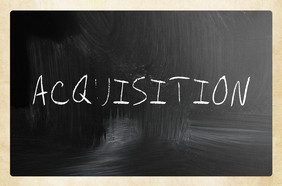Operational Due Diligence
Operational Due Diligence
Due diligence is an important aspect of all M&A transactions as it is a process that allows the acquirer to truly understand what they are purchasing. Mistakes during this process can prove to be costly and can make the difference between a successful acquisition and a failed one. The most common mistakes acquirers make during this process are failing to conduct operational due diligence and utilizing inexperienced people to conduct the process in effort to save on costs.
When conducting due diligence, most buyers tend to focus their efforts on financial, legal, and Human Resource due diligence. What is all too commonly missed during this process is the operational due diligence, i.e., studying, in detail, the customers, products, services, and business pipeline of the company to be acquired.
Most of the time, acquirers in the same industry don’t focus on operational due diligence as they feel they already understand the target’s business or customers. In reality, it is extremely difficult to truly “know” a company as every business is unique and competitors within the same industry will usually attempt to conceal their operations from one another. Operational due diligence should not only consist of asking customers about their satisfaction levels with the target company, but also thoroughly examining customer contracts to fully understand the risks involved with acquiring those customers.
Another common mistake acquirers make is using inexperienced people to conduct the due diligence process in an effort to save costs in the short term. This strategy can lead to substantial losses in the future as inadequate due diligence increases the likelihood of missing important red flags. Acquirers should always utilize employees that are qualified to conduct thorough due diligence. If such employees do not have the bandwidth to conduct the process or will slow down the transaction to a great degree, then the acquirer should always consider hiring a consultant that knows the industry and has experience performing M&A due diligence. While using more senior employees and hiring outside consultants will increase the cost of the transaction, this is certainly money well spent to insure that the acquisition will be valuable to the acquirer.
It is all too easy for acquirers to feel comfortable with targets in their industry. However, acquirers cannot afford to overlook operational due diligence and must treat every acquisition as a prudent investor. It is also imperative that acquirers are not “penny wise and pound foolish” in the performance of due diligence. Utilizing experienced employees and hiring outside consultants to conduct the due diligence process may increase the cost of the acquisition, but it will insure the acquisition adds to shareholder value.
Acquirers should always ask their M&A advisor how to organize their diligence. M&A advisors cannot perform the actual diligence as they have a conflict of interest. However, most well-experienced M&A firms have seen the diligence efforts from both sides of a transaction. Consequently, they have the unique ability to help organize the efforts and to avoid common pitfalls, particularly with neglecting operational due diligence. Versailles Group, a boutique M&A firm that has over 25 years of experience helping buyers and sellers knows how to guide a client through this very important process. They have seen, first hand, how to and how not to conduct proper due diligence.








